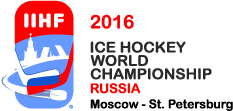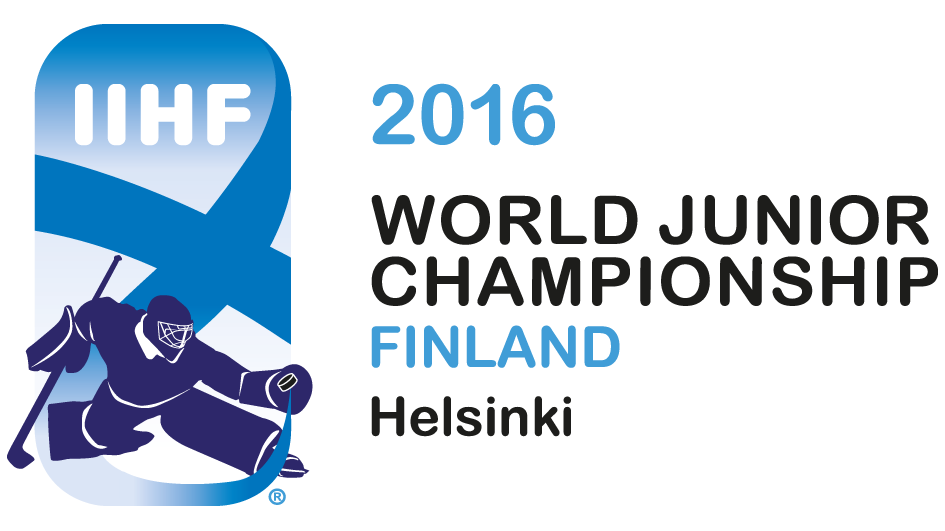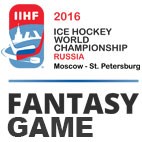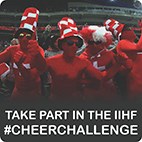Fetisov: Tough to play home
Fetisov: Tough to play home
A look back at worlds on Russian soil: 1986

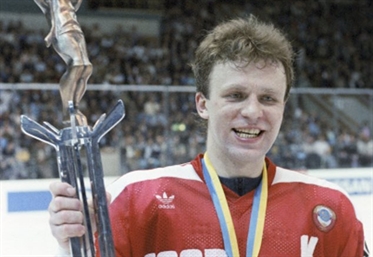 Soviet captain and the tournament’s best defenceman, Vyacheslav Fetisov. Photo: Sergei Guneyev / RIA Novosti
Soviet captain and the tournament’s best defenceman, Vyacheslav Fetisov. Photo: Sergei Guneyev / RIA Novosti
That April of 1986 the Soviet hockey community rejoiced over the winning of the 20th title and overtaking Canada as the winningest country in the World Championship.
For the national team coaches Viktor Tikhonov and Vladimir Yurzinov the competition was not a “passing fancy” or another routine event because a year ago in Prague they felt humiliating by just winning the bronze medals and a new failure would have given a good chance to their ill-wishers – and there were plenty – to renew speculations over the two coaches’ removal. That was why the demands on the players were strict. Former achievements were plainly discarded. Only those in perfect shape would make the roster.
All games of this spring tournament were held not just in one city, moreover, - in a small area of the Luzhniki Sports Complex – the Palace of Sports for 12,000 spectators and next to it the Smaller Arena, formerly a lawn tennis facility now refurbished into a hockey rink seating 9,000 fans. 375,820 spectators came to watch the 40 games.
That year started quite successfully for the hosts as the USSR U20 team won gold at the World Juniors in Canada. Valeri Kamenski starred on that team and was immediately taken into the men’s national team roster. Another bright star of that junior team was goalie Yevgeni Belosheikin. Many experts claimed he was even more gifted than Vladislav Tretiak himself who, by the time, had already retired. However, the Soviets’ main weapon was the “Pervaya Pyatyorka” or in English the “Russian Five”: Vyacheslav Fetisov and Alexander Kasatonov on defence and the “KLM line” of Vladimir Krutov, Igor Larionov and Sergei Makarov.
The tickets went like hot cakes as many elite players showed up for the contest. Not only the home team was popular. There was Marcel Dionne of Team Canada, who enjoyed tremendous popularity with the Russian fans, Brett Hull for Team USA, and Czechoslovak standouts like Dominick Hasek, Vladimir Ruzicka and Petr Rosol. Pat Quinn, Canada’s mentor complained though that he had to start with 17 players counting on those NHLers getting released from their respective clubs failing to make or move up into the Stanley Cup play-offs. However, Mario Lemieux referring to fatigue stayed home and never went to Moscow.
The most unpleasant surprise was the poor performance by Czechoslovakia in the first round of play. The defending champions blew their opener against Poland, 2-1. Then they lost to Sweden and were threatened elimination from the gold race. Thus, the USSR vs. Czechoslovakia game turned into a do-or-die affair for the Czechoslovaks. The drama ensued with Jiri Hrdina, following the teams’ line-up presentation, skated up to the Soviet goal crease and hit the posts three times with his stick. It had worked last year in Prague but the Moscow public booed the gesture. The game was tense, hard fought and ended with a USSR win, 4-2.
There was no distinct explanation of the poor showing by the Czechoslovak team. Following this fiasco, the situation boiled down to Czechoslovakia having to take on the United States, West Germany and again Poland to keep their berth in the top division. This they achieved with no serious problem.
Finland, which until then has never medalled at the Worlds or Olympics, created another surprise finding themselves in fourth place in the medal round where they tied Sweden 4-4 and then challenged Canada before ending up beaten in a one-goal game (4-3). And since there was the European title contest going on simultaneously at the Worlds, the Suomi team won European bronze with six points to their credit yielding the USSR in front with gold and Sweden with silver.
The USSR eventually won the World title ahead of Sweden and Canada but Vyacheslav Fetisov commented that winning on the home ice this time was really hard.
“Sure home ice was an advantage but that made it harder to win because of the pressure, responsibility and tougher demands from the home crowd,” he said in a post-event interview. One could add that the USSR team’s best performance came in their last three games during the medal round: 7-4 against Canada, 8-0 against Finland and a 3-2 win against Sweden.
Historians noted that the revenge came after 29 years of the memorable first ever World Championship in Moscow in 1957 when the Soviets missed out on gold against Sweden. This time Tre Kronor played strict defensive hockey and held to the tie for most of the regulation time but could not hold off the great attacking wave of the Soviets.
Final standings: 1. Soviet Union, 2. Sweden, 3. Canada, 4. Finland, 5. Czechoslovakia, 6. USA, 7. West Germany, 8. Poland.
The individual awards were won by Peter Lindmark as best goalie, Vyacheslav Fetisov as best defenceman and Vladimir Krutov as best forward. Sergei Makarov led the scoring race with 18 points (4+14).
It was the last IIHF Ice Hockey World Championship held in the Soviet Union where big changes were to follow for the country and for Russian hockey.
Back to Overview

